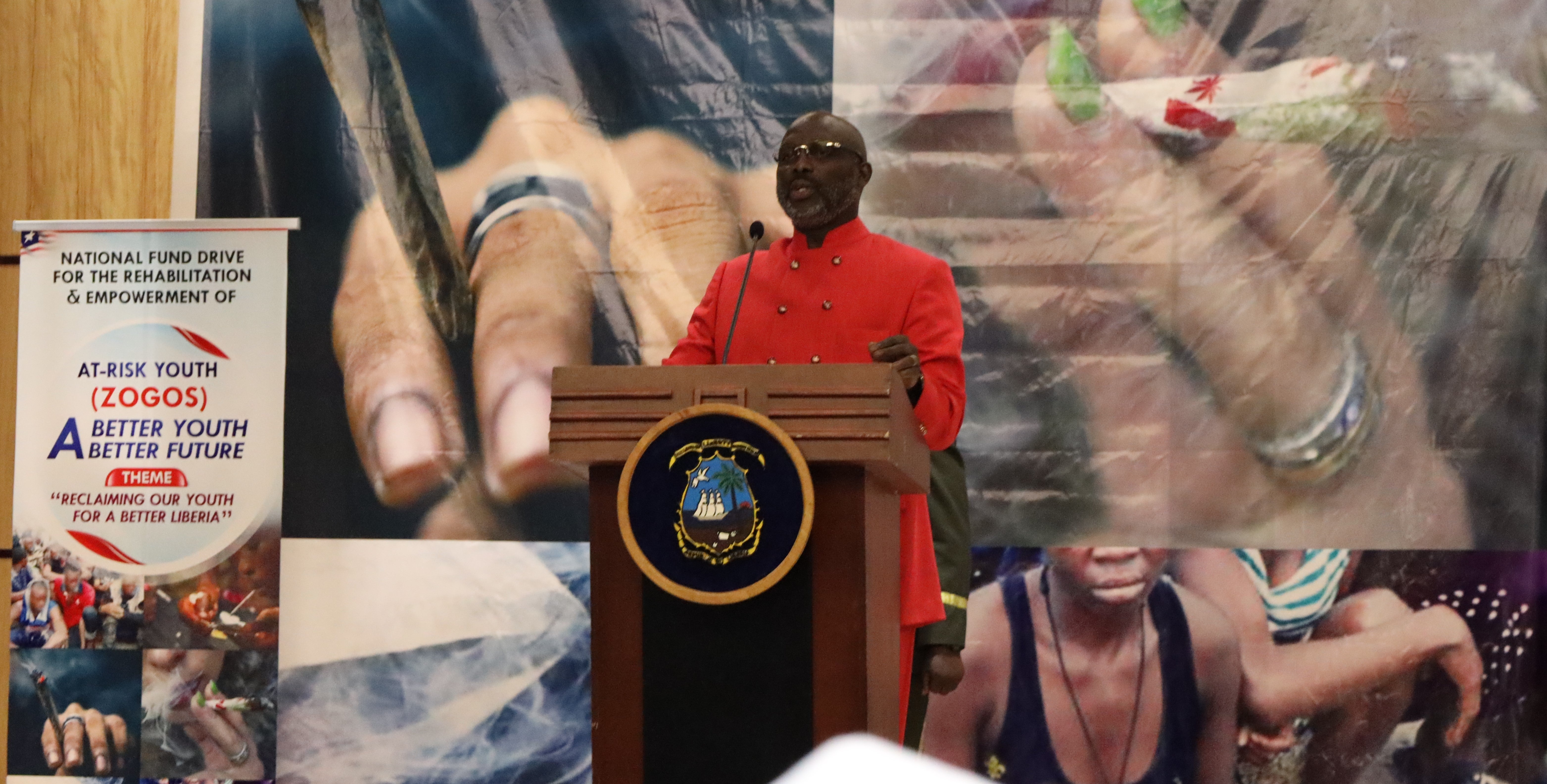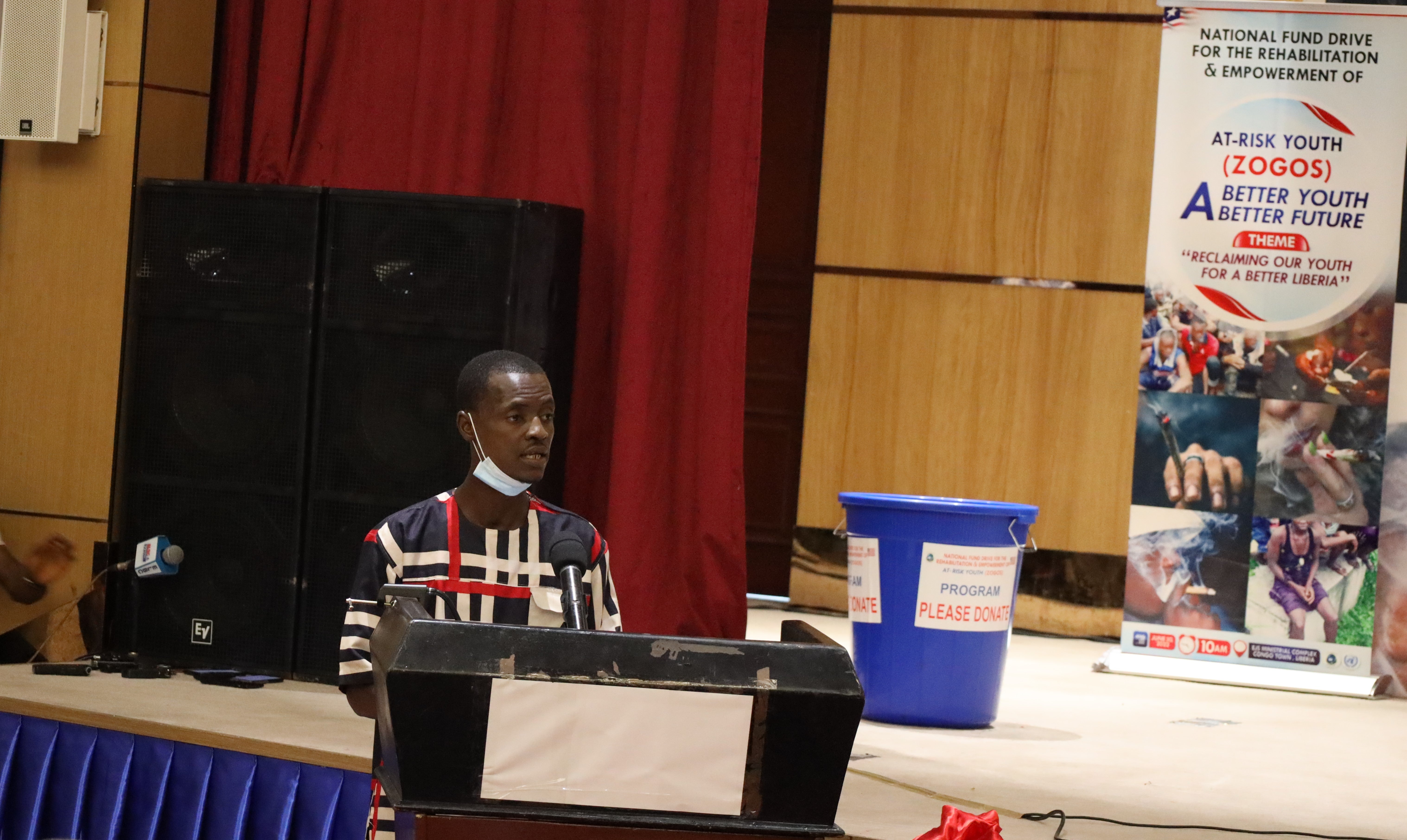It is estimated that 2 in 10 youth in Liberia are users of narcotic substances.
To sustain the desire and use of narcotic drugs, these young people who live in ghettos, street corners, and cemeteries often resort to crime, including armed robberies.
According to the Ministry of Youth and Sports, factors influencing the growing population of “At-Risk Youth,” in Liberia include “peer pressure, poverty, sexual and physical abuse, weak family support system, and intergenerational drug use” as many of the country’s current drug addicts' parents are former child soldiers. These child soldiers were themselves introduced to drugs at an early age.
“Losing young people to drugs will affect the country’s human capital, thus impacting national development negatively. The demographics of our population who are being consumed by drug addiction means that we need to act quickly,” says Liberia’s President, Dr. George M. Weah.
“The threat of imminent danger will continue to grow in size and scope if these potentially valuable human assets are not reclaimed, redeemed, and transformed into law-abiding citizens,” President Weah adds.

The Liberian leader spoke on 30 June at the launch of a national fund drive in support of a programme for the rehabilitation and empowerment of At-Risk Youth in Liberia by the Government in collaboration with the United Nations and partners.
He pledged an initial US$1 million as part of the Government’s contribution toward the 13.9-million dollars earmarked for the first cycle, which has been set at 30 months.
The programme aims to provide rehabilitation, skills training, social integration, and employment opportunities for At-Risk youth across Liberia.
However, a rehabilitated former drug user thinks the programme should go beyond the rehabilitation and reintegration of the At-Risk youth to include the reform of Liberia’s drug laws. According to Julius Mature, any programme directed at helping young people get off narcotic drugs cannot be successful with the current drug laws of Liberia.

“We must strengthen the laws prohibiting the importation of illicit drugs. The drug users cannot be considered criminals while those who make millions of dollars from importation are leniently dealt with when arrested,” Mr. Mature said.
Meanwhile, the United Nations in Liberia has pledged to support the Government’s At-Risk Youth programme and ensure the empowerment of the young people, especially those disadvantaged by society.
The UN Liberia Resident Coordinator, Niels Scott, said the United Nations was fully ready to support the Government’s effort to improve the chances of young people acquiring skills that can help them obtain decent employment.


